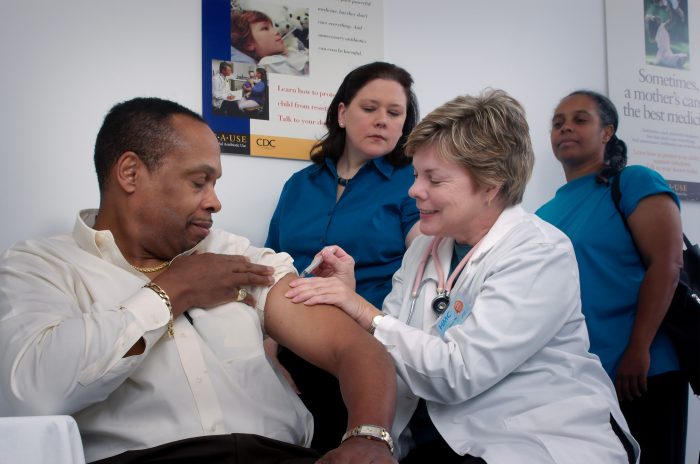Capitolwire: After May’s $1.6 Billion Tax Revenue Collection Overage, PA is Sitting at $2.9 Billion in Excess Revenue With One Month to Go in the Current Fiscal Year
By Chris Comisac, Bureau Chief, Capitolwire
HARRISBURG (June 2) — Less than a week after the state’s Independent Fiscal Office forecast Pennsylvania would end its current fiscal year with a $3.16 billion revenue surplus, the state Department of Revenue announced the commonwealth is well on its way to reaching that mark.
General Fund revenue collections for the month of May came in far stronger than originally estimated – totaling $3.9 billion, which was $1.6 billion, or 65.4 percent, ahead of expectations – mostly due to a one-month delay of the collection deadline for personal income taxes (PIT), pushing the state’s year-to-date collections to $2.9 billion, or 8.5 percent, above estimate with one more month of collections to go.
“We are also nearly $2.9 billion above our estimate for the fiscal year as of today,” said Revenue Secretary Dan Hassell on Tuesday in a press release announcing May’s General Fund Revenue collections. “This is very positive news with one month to go in the current fiscal year.”
Last week, the IFO updated its revenue forecast for the current fiscal year, FY2020-21, indicating the state’s General Fund would end the year with $1.674 billion more than the agency had estimated in January, pushing the estimated General Fund total, once June’s collections are in, to $40.111 billion, which is $3.16 billion more than was expected when the budget was finalized in November. The IFO’s report also included the agency’s initial revenue estimate for the coming fiscal year,FY2021-22, with that figure being over $2.1 billion less than what the state is expected to collect during the current fiscal year.
PIT collections totaled $1.9 billion last month, which was $1 billion, or 111 percent, more than anticipated, due to the tax filing deadline extension until May 17, more than making up for the $571.8 million shortfall experienced in April by the PIT because of the deadline extension. Through 11 months of the fiscal year, the PIT has collected $14.9 billion, which is $747.7 million, or 5.3 percent, above estimate.
While May’s revenue collection results were mostly due to the PIT, the PIT wasn’t the only revenue source performing above expectations, with those performances in most cases directly tied to the billions in federal dollars pumped into the state as part of the various COVID-19 stimulus initiatives during the past year. The IFO last week indicated there have been nearly $78 billion in direct federal payments to individual Pennsylvanians (by way of unemployment benefits and stimulus checks) during Calendar Years 2020 and 2021, along with another nearly $79 billion in federal support to businesses, as well as the state government and the commonwealth’s local levels of governments.
Revenue collections from the state’s Sales and Use Tax (SUT) continued their strong performance over the past several months, with the tax – helped by heightened consumer demand due to both additional federal dollars in people’s pockets as well as the COVID-19 virus in decided retreat prompting more people to get out and engage in economic activity – producing $1.2 billion in May, a total that was $211.8 million, or 22 percent, above estimate. Year-to-date SUT collections total $11.6 billion, which is $741.7 million, or 6.8 percent, ahead of expectations.
May corporation tax revenue collections were $163.7 million, or 61.4 percent, more than anticipated, producing a monthly total of $430.1 million, of which $417.5 million came from the state’s Corporate Net Income Tax (CNIT). For the year thus far, corporation taxes have generated $5.6 billion, which is $892.2 million, or 18.9 percent, above estimate.
An unfortunate side-effect of the past year of COVID-19 and the deaths the virus has caused has been a boost in the revenue generated by the state’s inheritance tax. In May, the tax’s collections were $136 million, which was $53.5 million, or 64.8 percent, above estimate, pushing total collections for the last 11 months of the fiscal year to $1.2 billion, which is $216.5 million, or 21.1 percent, above estimate.
The real estate market has been on fire in most areas of the nation, and Pennsylvania has been no exception. In May, the realty transfer tax produced $56.9 million in revenue, which was $14.8 million, or 35.1 percent, above estimate. Year-to-date, the tax has brought it $575.1 million, which is $95.5 million, or 19.9 percent, ahead of expectations.
The state’s “sin taxes” – including cigarette, malt beverage, liquor and gaming taxes – also continued to perform well in May, totaling $191 million in revenue, which was $24.5 million, or 14.7 percent, above estimate, pushing the fiscal-year revenue total to $1.6 billion, which is $132.3 million, or 9.1 percent, more than anticipated.
Non-tax revenue was likewise above estimate last month, by a total of $45.6 million, or a whopping 377 percent, which the IFO attributed to higher-than-expected license and fee collections, as well as other miscellaneous collections. May’s $57.7 million in collections brings the year-to-date total to $1.1 billion, which is $42.8 million, or 4 percent, above estimate.
June begins what most hope will be the homestretch toward a finalized budget for FY2021-22, though reports emanating from the state Capitol suggest there are several areas of disagreement between Democrat Gov. Tom Wolf and the Republican-controlled General Assembly, including issues related to proposed tax and spending hikes (as well as the redirection of existing education and other spending), and the appropriation of the more than $7 billion in federal COVID-19 stimulus/relief funding distributed to Pennsylvania as part of the last federal stimulus initiative.

















